Accordingly, to our Mission, enforcing our Management Policy and considering the values of Excellence, Responsibility, Loyalty, Respect and Diligence, at Travel Excellence, we define our firm and permanent commitment to:
To offer Costa Rica as a sustainable touristic destination through responsible marketing practices that ensure economic sustainability.
To encourage respect and opportunities for vulnerable groups and to reject business related to illegal trafficking, consumption of illegal substances, sexual harassment, sexual exploitation of minors and terrorism in compliance with OFAC policies.
To comply with and enforce national and international legislation on topics as labor, tourism, environmental protection and social respect.
To support and stimulate the local economy, traditions and culture by promoting the development of the communities where we operate.
To promote a productive work environment that encourages gender equality, and a better quality of life for our work team, ensuring the integral health of our staff and that labor relations are within the legal framework.
To protect people (clientele, staff, suppliers and others) with fair marketing practices, promotion of sustainable service and customer privacy.
To protect the environment by measuring our impact in the office and in the field through the rational use of resources, waste management and greenhouse gas emissions and denounce harmful practices such as: pollution, artificial feeding, and the illegal captivity of wild animals and the extraction of wild plants.
To spread and involve customers in sustainable practices so that they meet the standards of excellence.
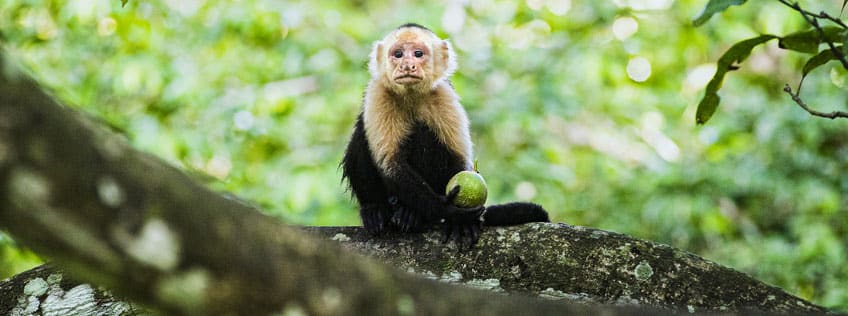
According to the World Tourism Organization, The Sustainable Tourism leads to the management of all resources in a way that satisfies the economic, social and aesthetic needs, keeping the cultural integrity, the essential ecological processes, the biological diversity and the systems that support life.
In order to develop this tourism model, we must develop sustainable activities to protect the environment and executing social projects that help the local populations and the protected areas, always providing a high quality service.
Being ecologically responsible on a trip does not mean having to sacrifice the quality of the services that are reserved or the plans regarding the desired itinerary. It consists of planning the visit with a greater awareness on conservation.
We strongly believe that, whenever possible, the visited communities should receive a direct benefit, for the trips to be sustainable.
General Information to be a responsible tourist
Travel Excellence is one of the first tour operators in Costa Rica that has the Tourism Sustainability Certificate (CST) and was also one of the first ones to apply the new CST 2.0 standard. Our qualification for the 2018-2020 period is CST elite, a maximum possible out of two.
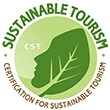
The Tourism Sustainability Certificate is a process through which companies and organizations analyze their operation seeking efficiency, productivity, quality, measurement of environmental impact and customer satisfaction.
This certification helps the destinations to establish development models that enrich the community and the culture, while making a responsible use of the resources and promote the conservation.
To obtain the certification, the following fundamental areas are evaluated:
Et evaluates aspects related to sustainability management, service quality, safety and development issues for the employees, infrastructure and equipment management and regulatory compliance, among others.
It evaluates the criteria related to the socio-economic impact, it gives support for the community development and gender equity; and the contribution to the development and dissemination of the local culture. It also evaluates the aspects related to the company’s internal systems and processes, regarding waste management and the use of technologies for saving electricity and water.
It evaluates the management of the company in relation to the use of water and effluent control, the energy efficiency and the use of clean energy; the waste management, the procurement policy and the contribution to the biodiversity conservation; the carbon footprint mitigation and the climate change adaptation policies, as well as the support for the management of adjacent ecosystems and the pollution reduction.
Evalúa todos los aspectos propios de cada categoría de prestador, subcategorías y características especiales de las operaciones.
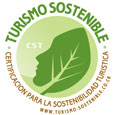
CST a brand with support and credibility
The National Accreditation Commission of the CST is the body responsible for granting the CST distinction and for ensuring that companies certified with the logo comply with the provisions; in such a way that, both tourists and wholesale agents, have the certainty that indeed the certified companies adhere to a business management that considers aspects related to social responsibility, corporate responsibility and even more, to the sustainability.
Travel Excellence is an operator that cares about the nature conservation and the Costa Rican traditions; therefore, we help to protect the different regions visited by our customers and we try to maximize the benefits these communities receive thanks to these tourists.
The company supports a great number of social and environmentally responsible initiatives, such as rural community tourism, environmental projects and educational programs of different areas in the country. We motivate our clients to visit and get involved in many of these projects, which are developed in many places, such as wildlife sanctuaries, schools and cooperatives.
Thanks to their participation in these initiatives, each community receives direct and indirect benefits from those visitors, while they acquire an authentic knowledge of the local culture.
We rely on the comments received from our clients, to design new, personalized itineraries, in which we recommend restaurants, handicraft shops and other small business that we wish to benefit through the touristic activity; thus, we promote local attractions, environmental protection and touristic services, including lodging, in many rural destinations.
Tourism as an economic activity, has shown that it can also act as an agent of protection and promotion for this historical-cultural heritage, since it represents the identity of a specific zone; acting as an important touristic resource. This is the reason why we need not only to promote it but also to protect it.
The protection of the historical and cultural heritage of the visited sites, aims to motivate the development of social awareness to favor and defend such heritage and to promote the access of the communities for the use and enjoyment of these assets.
Recommendations:
We recommend to visit the museums in San José, to learn a little more about the historical past of Costa Rica. These are some of the museums that can be visited:
It is a non-profit organization, whose only client is the National Parks of Costa Rica.
They develop many programs that ensure the development and sustainability of the National Parks and the professionalization of the park rangers, providing a strategy, a technology and efficient work tools to the National Parks System.
Travel Excellence, as a founding partner of Friends of the National Parks project, has supported through donations the protection programs for the areas surrounding the parks.
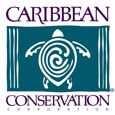
It is a non-profit organization, based in Florida, USA, with offices and projects in different places. It is the oldest and most successful organization dedicated to the protection of the sea turtles in the world. Since its establishment in 1959, the work of the CCC has improved the survival perspectives of several turtle species.
Travel Excellence supports this organization since 2007, through a yearly fee. We support the study and monitoring of a turtle called Gaia.

It is a private non-profit organization, of a technical and preventive nature and non-political-partisan affiliation. It was created in 1987 and declared of public interest by the Government by the end of 1989.

The “Code of Conduct” Project is a strategy for companies that wish to be socially responsible. The importance of children as the responsible adults of tomorrow is emphasized and placed on the fact that every child should be loved and respected as an individual. The intention of this entity is to report any case of sexual and commercial exploitation of children and adolescents.
We support projects to protect the environment, the rural community tourism and the aid programs for low-income schools and day centers. The creation of alliances has been fundamental for the development of actions to benefit the society and the environment.
We encourage our customers to visit wildlife sanctuaries and rural communities typical of the country.
We recommend our clients to make donations to social assistance institutions. We also help restaurants, shops and other local business, which directly benefit the communities.
We encourage our clients to collaborate with vulnerable populations.
Learn and investigate about the local culture and traditions of the country you are visiting. A little time dedicated to research will be very useful when you are in the country. Study the language and try to learn some basic sentences that can help you feel more comfortable and communicate during your trip. Openness and a willingness to learn about the differences between foreign cultures and your own culture, will open many doors, especially when combined with a bit of tolerance for the differences.
You can help to respect and care for the local environment in many ways; for example, not picking wild flowers, disposing of waste responsibly and trying to recycle as much waste as you generate.
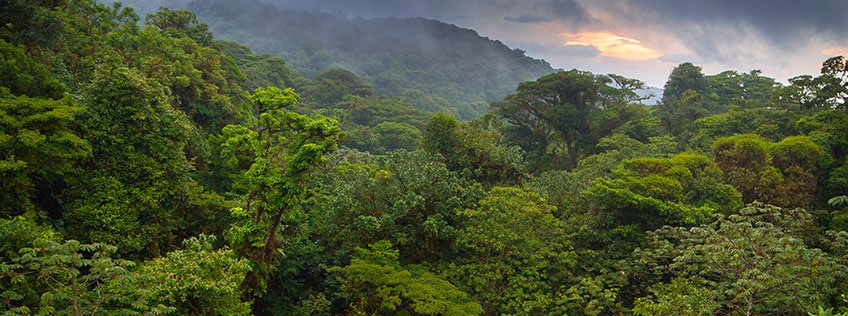
Travel Excellence is firmly committed to responsible tourism practices and our policies reinforce this commitment:
Fortunately, Costa Rica, the birthplace of ecotourism, is also a place where this activity has reached its highest level of achievement and success. This natural paradise has a lot of experience showing its wonderful natural wealth to the tens of thousands of tourists who visit it every year.
Costa Rica is a small country of great scenic beauty and natural wealth that has an area of 51,100 square kilometers. In this little piece of land that represents only 0.3% of the total surface of the planet, 5% of the world’s biodiversity is housed. It has more species of birds than the United States and more variety of butterflies than the entire African continent, hence, this Central American nation of almost 5 million inhabitants has earned justified international recognition.
In its various habitats and ecosystems live 12,000 species of plants, 2,000 species of moths, 160 species of amphibians, 220 species of reptiles, 1,600 species of freshwater and saltwater fish, some 875 species of birds and at the least 205 mammal species.
In this wide natural landscape, Costa Rica also has various types of forest such as deciduous, mangroves, rainforests, herbaceous lagoons, cloud forests, badlands, palm groves, oak groves, riverside forests and swampy forests.
But the natural scenario does not end here, there are other areas of great interest and beauty such as the volcanoes, most of them active with hot springs and caverns. There are also the Pre-Columbian settlements, of great importance for the study of the archeology of Mesoamerica, which are part of the large system of National Parks (33), Wildlife Refuges (51), Biological Reserves (8), Forest Reserves (13) and Protective Areas (26) which in total cover almost 26% of the national territory.
It is the most abundant substance on earth and is the ideal means for life. Water is necessary for all living beings: without it our planet would have no life. Although we can live with 3 or less liters of water per day, we generally need much more to stay healthy.
Responsible practices in the use of water:
We promote among our staff good water saving practices, through specialized training that reinforce the company’s water saving policies. We also reinforce their awareness regarding this issue and ask them to implement actions to demonstrate compliance with such policy.
Renewable energies are characterized because their transformation and exploitation processes take long periods of time. Some examples of energy types are: hydraulic, solar and eolic, among others. Energy production in Costa Rica is based on hydraulic mechanisms, which do not affect sources of water. The highest consumption of electricity in Costa Rica is in lighting, air conditioning and services in general.
Some responsible practices for the energy use are:

It contributes to the sustainable development of Costa Rica through the conservation and the rational use of natural resources, in order to improve the quality of life and the development of the country.

The National Fund for Forestry Financing (FONAFIFO), executes the Environmental Services Payment Program (PPSA), for the benefit of small and medium-sized landowners with forest or forest aptitude, in order to promote the maintenance and recovery of the country’s forest cover.
The flora and fauna depend on each other, based on the natural laws that govern the structure and functions of living together. For this reason, we humans play a very important role in the conservation of the different species of the planet.
Recommendations for the conservation of the wild life:
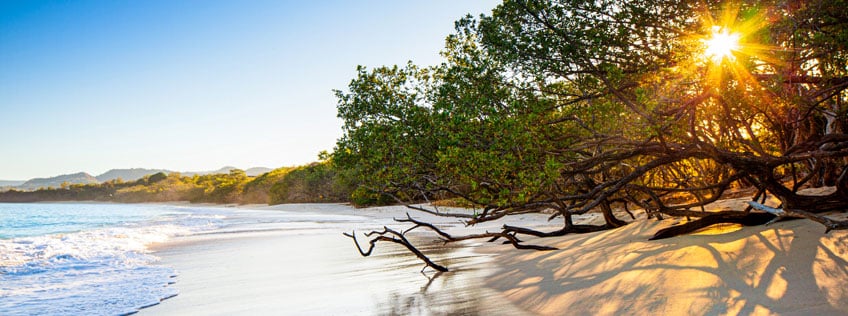
Travel Excellence is firmly committed to the principles of responsible tourism, such as the application of environmental laws and regulations of parks and natural reserves; also with compliance with the general laws that regulate our tour operation.
The laws and regulations that govern Costa Rica, such as public order and citizen protection, are given to our staff and clients, so that they respect them and follow its principles.
It is necessary to strengthen national and international laws on the protection of the flora and fauna, the air quality and the sense of social responsibility, as a way of protecting our historical and cultural heritage.
List of applicable laws:
Law Applications:
Our company, whose main objective is to satisfy our customers, has established service standards that allow us to measure, through the knowledge of the needs and expectations regarding a trip, the degree of satisfaction obtained. All this thanks to the perception and image of the company that customers keep, as a product of the service received.
For this reason, we do our best to guarantee high quality products and services to our end customers and intermediaries. Additionally, we have a preventive maintenance program for our building, transportation units and equipment.
To prevent accidents at work and reduce the risk of illness, we have a comprehensive health program for our staff. We also protect our customers through:
The environment should be considered as part of the general education. The knowledge about issues related to natural resources and our environment makes people act with a more preservationist awareness and look for more sustainable ways of handling their waste. In this sense it is important to apply the following parameters:
The materials that can be recycled are: plastic, organic material, glass, cans among others.
Recycling is considered as a necessary activity, because it is a solution for the many problems related to the solid waste and also for the many benefits it brings:
We are active members of the most important tourist associations, both national and international.
To navigate this site use a different one than Microsoft Explorer.